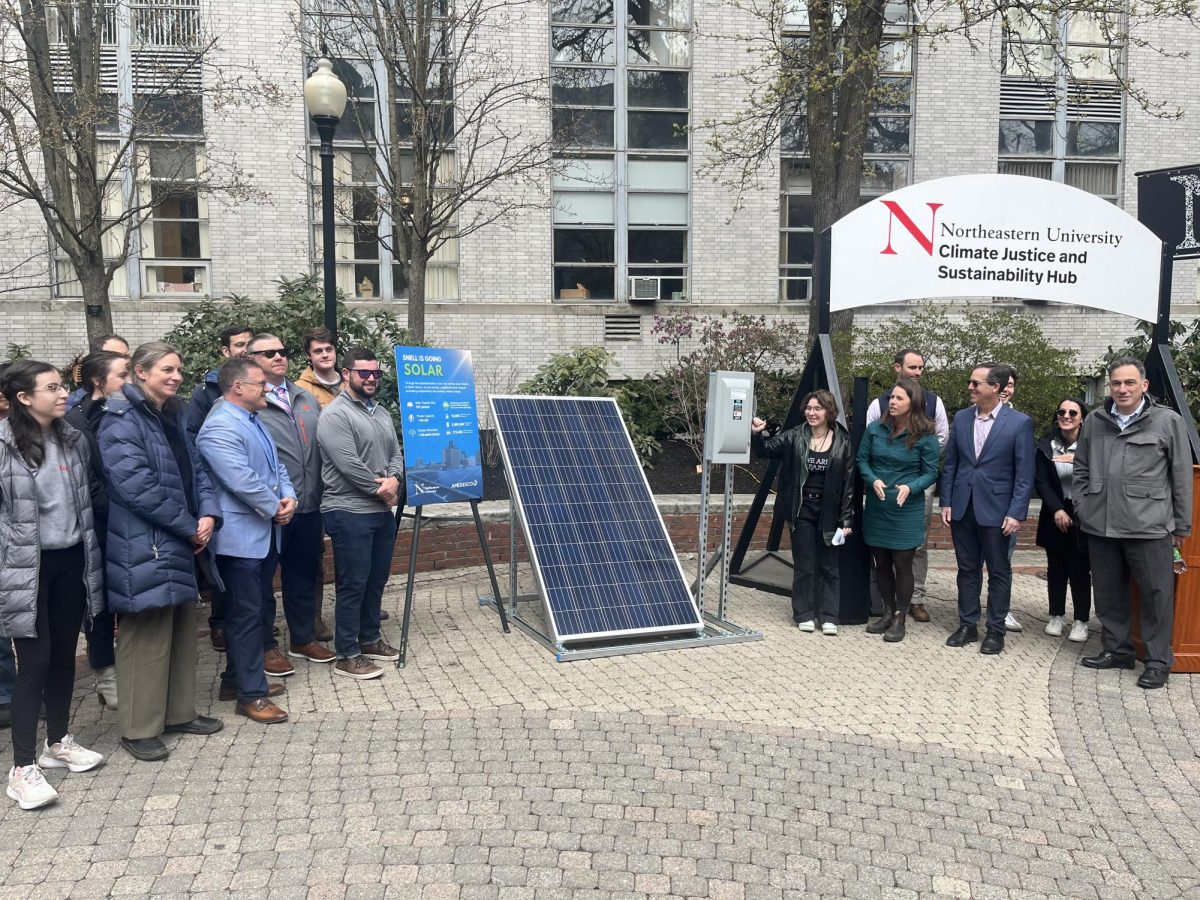By By James Cucchi, News Correspondent
Many students view higher education as a surefire way to success in the working world, an impression that is echoed time and time again in both popular culture and within many family settings. While the benefits of higher education are widely acclaimed, the costs may often be a secondary concern, as students use loans to cover a significant amount of tuition costs.
‘Even though tuition costs are high, education is a worthwhile investment,’ said freshman business major Noah Mellen.
According to a study released in October 2008 by The Institute for College Access and Success, a nonprofit organization devoted to making higher education more readily available and affordable, the average graduate from a four-year institution in Massachusetts has more than $21,000 in debt upon graduation.
Even more significant is that the cost of gaining a degree has risen more than three times as quickly as median income during the period spanning 1982-2007, according to the National Center for Public Policy and Higher Education, a nonprofit organization that promotes policies favorable to higher education.
John Kwoka, a Northeastern economics professor, said debt due to private student loans has negative consequences later in life.
‘Students who finish their degrees, coming out of college with a lot of debt, will likely alter their careers and lifestyles, as they try to manage living costs plus the need to pay back their debt,’ he said. ‘Some will look at how much they owe and decide they can’t afford to pursue the careers they might have wanted ‘hellip; in nonprofits, public service work and other admirable but lower-paying jobs.’
Brendan Gobell, a freshman international business major, said that he could understand how the current state of the economy might affect the job market.
‘In today’s economy it might be tougher to find a job that would enable a student to pay back loans,’ he said.
As the cost of higher education increases at a greater rate than income, an ever greater number of students are forced to take out private student loans, often at high interest rates. Lauren Asher of the Project on Student Debt said in a December 2008 Boston Herald Article that college loans can have rates as high as 20 percent. The high interest rates of private college loans are ‘making higher education a less viable option for many people,’ said freshman pharmacy major Alexander Allewell.
While private student loans may be necessary for some students to finance their education, dependence on them can be reduced through the use of other means of financial aid,’ said Student Government Association (SGA) Vice President for Financial Affairs Jennifer Hardy.
There are scholarships, work-study and even co-op jobs that students can use to help finance their education, Hardy said.
‘I personally save 50 percent of my co-op checks in order to finance my education. It doesn’t seem like a large amount, but that’s a couple thousand less I will have to pay in loans for books or housing,’ Hardy said.
Hardy said SGA, in cooperation with the Office of Financial Services, is helping students find alternate means of financing through a series of upcoming programs that include Loans 101, Financial Aid 101, Scholarship Searching and a Free Application for Federal Student Aid (FAFSA) filing workshop.
While much financial aid is available through the university, there are also many scholarships offered outside the university, Hardy said, and she said she hopes students will come to the scholarship searching workshop to learn how they can find scholarships to help reduce their dependence on borrowing.
University Director of Financial Aid Services Anthony Erwin echoed this sentiment and urges students to file their financial applications on time and look for scholarships. He also suggests that students consider federal parent plus loans, which have more favorable rates compared to private loans and can now be deferred until after graduation.
‘Many students who could be using these loans falsely believe that payments cannot be deferred until graduation,’ Erwin said.
Despite the current economic downturn, President Joseph Aoun said he remains committed to keeping Northeastern accessible to students. In a recent statement printed on the myNEU portal, the president said that ‘Increasing resources for financial aid to our students ‘hellip; must be [a priority] as we manage the university through this challenging time.’
Freshman biochemistry major Michael Bellows believes that this is a good policy and that ‘the accessibility of the university should be an important consideration in future financial planning.’
Kwoka said that it is important that everyone remain positive and continue to work to make the university a better place, regardless of the financial situation.
‘ ‘The hope is that if everyone ‘- the university, students, employers ‘- does their part, we can ride out this pretty serious downturn,’ Kwoka said.













